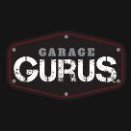-
Welcome to Auto Parts Forum
Whether you are a veteran automotive parts guru or just someone looking for some quick auto parts advice, register today and start a new topic in our forum. Registration is free and you can even sign up with social network platforms such as Facebook, X, and LinkedIn.
Why OEMs Are Investing In Lithium-Ion Battery Recycling
-
Similar Topics
-
By Mia
The brake pads seem to make strange noises often.
Have you ever experienced this?
Have you ever found out the reasons?
I only know these reasons:
Causes of noise
① Excessive wear of the brake disc causes noise.
② It is easy to form an oxide layer on the surface of brake disks in a humid environment. The change of the contact surface between the brake disc and the brake pad causes abnormal noise.
③ Due to the corrosion or stagnation of the caliper, the guide pin is not lubricated enough and cannot return efficiently, resulting in incomplete contact between the brake pad and the brake disk.
④ During the running-in period, the brake pads and brake disks are not running in enough. After hundreds of kilometers, the noise will be automatically eliminated.
⑤ On muddy roads, dirt and stones adhere between the brake pads and brake disks. In this case, noise is prone to be caused.
⑥ Brake noise is caused by brake pad formula.
And some understanding of whether the brake pads need to be replaced if abnormal noise occurs.
When should brake pads be replaced?
Brake pads generally need to be replaced after the vehicle has traveled approximately 60,000 kilometers. However, the warranty for KETULLA brake pads ranges from 30,000 to 50,000 kilometers, depending on driving habits and road conditions.
When the thickness of the brake pads approaches or falls below 0.3 centimeters, it’s time to replace them. If you hear friction noises when lightly pressing the brakes, immediate replacement is necessary. When the friction material thickness decreases to 8 millimeters, it’s advisable to inspect and possibly replace the brake pads. When the pad and steel plate thickness decreases to 3 millimeters, immediate replacement is recommended to avoid safety hazards.
The lifespan of brake pads typically falls between 30,000 to 50,000 kilometers, depending on driving habits and conditions. Warning signs for brake pad replacement include decreased braking performance, increased braking distances, and abnormal noises. Regular inspections are necessary to determine when brake pads need replacement.
New brake pads usually have a thickness of approximately 1 centimeter, with a usable limit of 3 millimeters. If brake pads are excessively worn, contaminated with oil, or show signs of abnormal wear or tearing, they should be replaced immediately. It’s essential to regularly check brake pad wear and replace them as needed. Replacement intervals may vary depending on the type of brake pads and driving conditions.
Regularly inspect the thickness of brake pads, and if worn to at least 1/4 inch, it’s time for replacement. The lifespan of brake pads depends on various factors, including driving style, vehicle type, and load conditions. Regular inspections are necessary to determine when replacement is needed.
If you also want to know some information about brake pads, you may go here:
link hidden, please login to view -
By carbdoc
I cannot find a remanufactured brake booster for my 1978 Dodge D-150 truck with 400 c.i.d. engine to save my life! Yes, I can send mine out for rebuilding and hope that it comes back correctly repaired (or comes back at all), but I don't want to take my truck completely out of service while I wait for it to (hopefully) be correctly rebuilt. I would, however, gladly settle for a "loose" rebuildable core.
If anyone reading this has a rebuildable core that they will sell to me, I would be quite grateful.
Jeff




Recommended Posts
Join the conversation
You can post now and register later. If you have an account, sign in now to post with your account.
Note: Your post will require moderator approval before it will be visible.